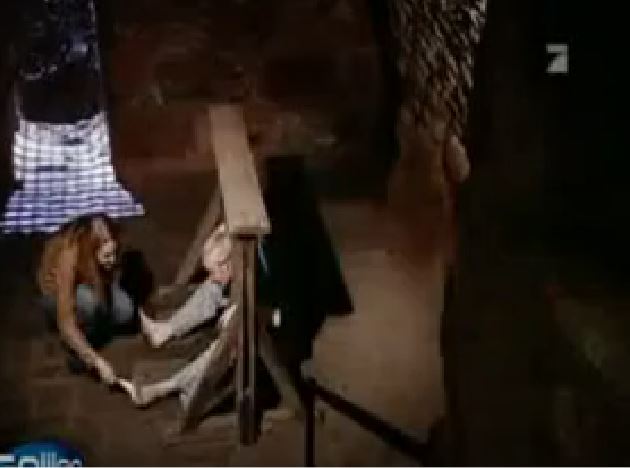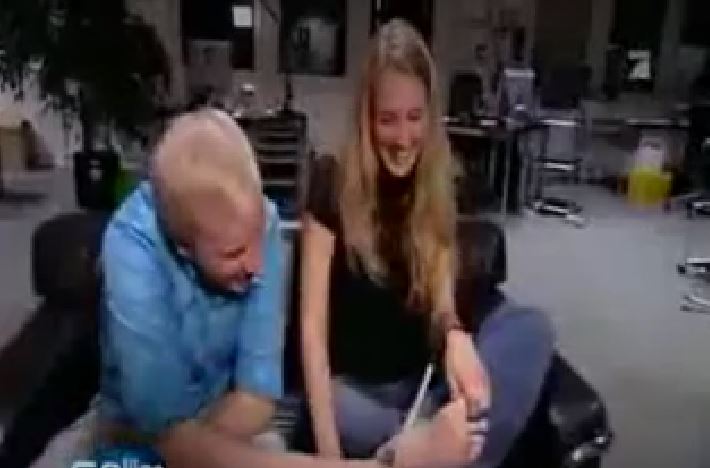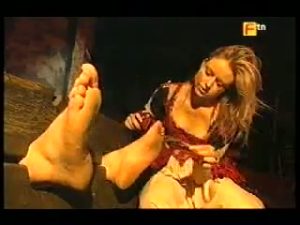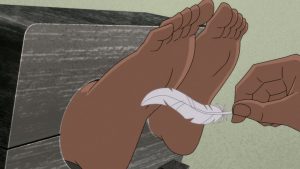In the TV program “Galileo,” reporters Eva Eich and Kimo Wiemann set out to investigate a curious phenomenon: why can’t we tickle ourselves? The program opens with this question, which seems to have a simple answer but actually hides a complex explanation.
Leggi tutto: Tickle Documentary in “Galileo” TV Show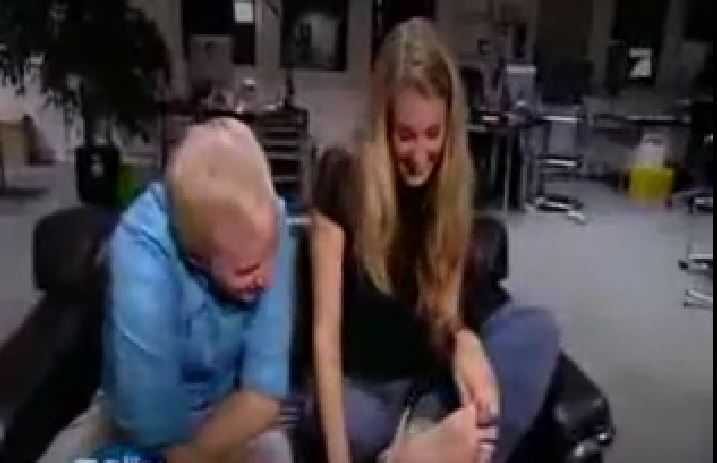
To solve the mystery, Eva and Kimo conduct an experiment. Eva tries tickling herself using various tools, such as feathers and other objects, but finds that it is virtually impossible to provoke the typical laughter reaction. This leads the two journalists to reflect on what happens in the body when one is tickled by someone else.
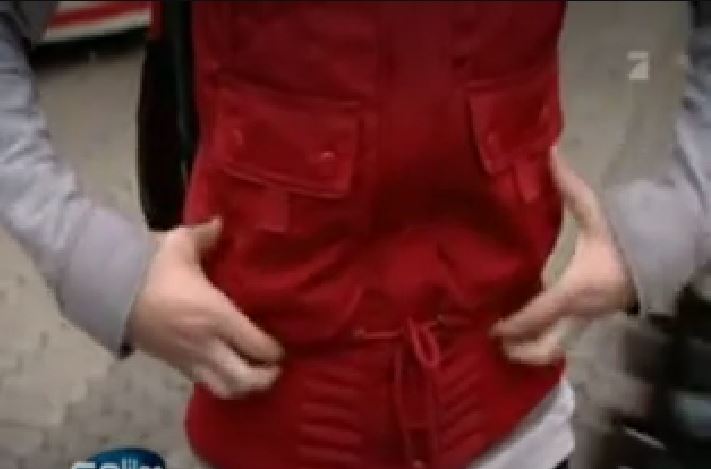
To explore this further, they interview Dr. Michaela Krause, a neurologist who is an expert in body reactions. Dr. Krause explains that when someone tickles us, the brain initially interprets the touch as a threat, causing an increase in body tension. However, when we realize we are not in danger, the cerebellum “kicks in,” and the tension is transformed into relief, which is perceived as pleasant, triggering laughter.
This effect, however, does not occur when we tickle ourselves, because the brain anticipates the touch and does not consider it a threat. As a result, there is no alert reaction and, therefore, the relief mechanism that leads to laughter is not triggered.

The report not only explores the scientific aspects of tickling, but also examines its historical context. Reporters visit a medieval prison in Nuremberg and talk to Frank Zankel, an expert on prison history. Zankel describes how, centuries ago, tickling was used as a form of torture. Prisoners, locked in the pillory and subjected to forced tickling by strangers, felt no pleasure, only humiliation and pain.

This practice, used to punish and expose them to public ridicule, leveraged the very element that transforms tickling from a pleasurable game to a form of torment: the loss of control and the continuous stimulation of sensitive areas of the body.
Finally, the service returns to the original question, asking why we cannot tickle ourselves. The answer, as Dr. Krause points out, lies in the way the brain processes self-induced touch: since it is a predictable action, the brain does not react with tension, thus eliminating the component of surprise and relief that induces laughter.

To end on a light-hearted note, the presenter jokes with the host, pretending to tickle him while he is stuck in a pillory, ironically evoking the historical theme covered in the service.
